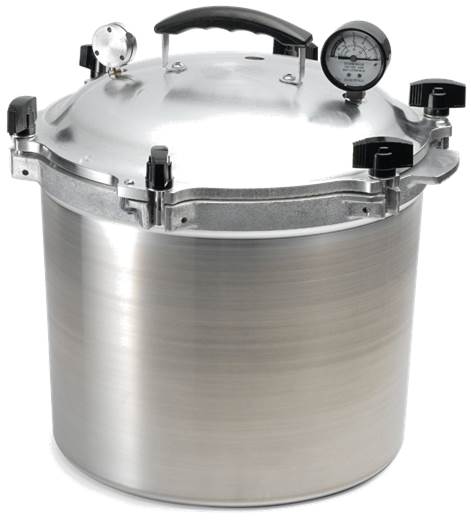Finally, summer is here and your garden may be offering a bounty of fresh produce. If you plan to preserve your harvest throughout the season by using a pressure canner, one of the most important things that you can do in preparation for canning season is to get your pressure canner’s gauge tested for accuracy.
 Pressure canning is a canning method that is necessary for safely canning low-acidity foods, such as vegetables like corn, peas, beans, carrots and potatoes. Your pressure canner should be tested for accuracy every year. The beginning of the summer is a great time to get it tested.
Pressure canning is a canning method that is necessary for safely canning low-acidity foods, such as vegetables like corn, peas, beans, carrots and potatoes. Your pressure canner should be tested for accuracy every year. The beginning of the summer is a great time to get it tested.
The testing process involves comparing your pressure canner’s gauge to that of a master gauge. If your pressure canner’s gauge is accurate, then you can be certain that, as long as you follow tested recipes, your food will reach a temperature that is high enough to kill harmful microorganisms, and you will be safely canning low acidity foods.
If your gauge reads up to two pounds higher than the master gauge, you must add that amount of difference to the required pressure so you don’t under-process your food. For instance, if the master gauge reads 11 PSI and your gauge reads 12 PSI, process at 12 PSI when the instructions say 11 PSI.
If your gauge reads up to two pounds lower than the master gauge, you may subtract the same amount it differs from the required pressure. For example, if the master gauge reads 11 PSI and your gauge reads 10 PSI, you may process at 10 PSI when the recipe says 11 PSI. In this case, you may also use the pressure stated in the instructions for added safety; it will not harm your food to process at higher temperatures than called for.
If your pressure canner’s gauge reads high or low by more than two pounds, it should be replaced.
Food processed in boiling water bath canners will never reach temperatures higher than 212°F, which is not a high enough temperature to kill the pathogens that will grow in low acidity foods. Higher acidity foods, like fruit, pickles, or jam do not need to reach temperatures higher than 212°F, and can be safely canned in a boiling water bath canner, and this type of canner does not require testing. Some pressure canners use a weighted gauge, and these do not require testing either.
Contact your local Extension office to learn about pressure canner testing service. Your Extension office will also be able to ensure that the different parts of your pressure canner are in good condition and are safe to use.
Sources:
Ohio State University Extension, Pressure Canner Inspection (2010).
Written by: Joanna Rini, Extension Educator, Family and Consumer Sciences, Ohio State University Extension Medina County
Reviewed by: Linnette Goard, Field Specialist, Food Safety, Family and Consumer Sciences, Ohio State University Extension
